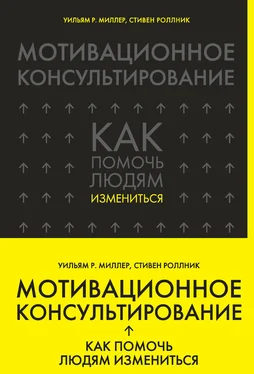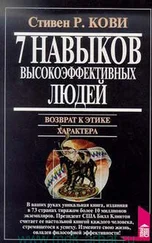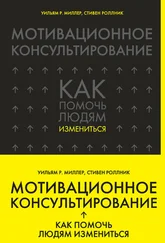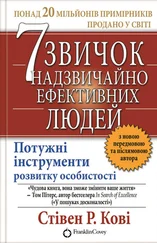Campbell, S. D., Adamson, S. J., & Carter, J. D. (2010). Client language during motivational enhancement therapy and alcohol use outcome. Behavioural and Cognitive Psychotherapy, 38(4), 399–415.
Catley, D., Harris, K. J., Mayo, M. S., Hall, S., Okuyemi, K. S., Boardman, T., et al.
(2006). Adherence to principles of motivational interviewing and client within– session behavior. Behavioural and Cognitive Psychotherapy, 34 (1), 43–56.
Collins, S. E., Carey, K. B., & Smyth, J. (2005). Relationships of linguistic and motivation variables with drinking outcomes following two mailed brief interventions. Journal of Studies on Alcohol, 66 (4), 526–535.
Dunn, C., Droesch, R. M., Johnston, B. D., & Rivara, F. P. (2004). Motivational interviewing with injured adolescents in the emergency department: In-session predictors of change. Behavioural and Cognitive Psychotherapy, 32(1), 113–116.
Ernst, D. B. (2008). Motivational interviewing and health coaching: A quantitative and qualitative exploration of integration. Unpublished doctoral dissertation, University of New Mexico, Albuquerque.
Faris, A. S. (2007). Examining process variables in a motivational intervention for college student drinkers. Unpublished doctoral dissertation, University of Arkansas, Fayetteville.
Flores-Ferran, N. (2010). An examination of mitigation strategies used in Spanish psychotherapeutic discourse. Journal of Pragmatics, 42(7), 1964–1981.
Forrester, D., Kershaw, S., Moss, H., & Hughes, L. (2008). Communication skills in child protection: How do social workers talk to parents? Child and Family Social Work, 13(1), 41–51.
Gaume, J., Bertholet, N., Faouzi, M., Gmel, G., & Daeppen, J.-B. (2010). Counselor motivational interviewing skills and young adult change talk articulation during brief motivational interventions. Journal of Substance Abuse Treatment, 39(3), 272–281.
Gaume, J., Gmel, G., & Daeppen, J.-B. (2008). Brief alcohol interventions: Do counsellors’ and patients’ communication characteristics predict change? Alcohol and Alcoholism, 43(1), 62–62.
Gaume, J., Gmel, G., Faouzi, M., & Daeppen, J.-B. (2008). Counsellor behaviours and patient language during brief motivational interventions: A sequential analysis of speech. Addiction, 103(11), 1793–1800.
Gaume, J., Gmel, G., Faouzi, M., & Daeppen, J. B. (2009). Counselor skill influences outcomes of brief motivational interventions. Journal of Substance Abuse Treatment, 37(2), 151–159.
Glynn, L. H., & Moyers, T. B. (2010). Chasing change talk: The clinician’s role in evoking client language about change. Journal of Substance Abuse Treatment, 39(1), 65–70.
Hallgren, K. A., & Moyers, T. B. (2011). Does readiness to change predict in– session motivational language? Correspondence between two conceptualizations of client motivation. Addiction, 106(7), 1261–1269.
Hodgins, D. C., Ching, L. E., & McEwen, J. (2009). Strength of commitment language in motivational interviewing and gambling outcomes. Psychology of Addictive Behaviors, 23(1), 122–130.
Imel, Z. E., Baer, J. S., Martino, S., Ball, S. A., & Carroll, K. M. (2011). Mutual influence in therapist competence and adherence to motivational enhancement therapy. Drug and Alcohol Dependence, 115(3), 229–236.
Karno, M. P., & Longabaugh, R. (2005). Less directiveness by therapists improves drinking outcomes of reactant clients in alcoholism treatment. Journal of Consulting and Clinical Psychology, 73(2), 262–267.
Karno, M. P., Longabaugh, R., & Herbeck, D. (2009). Patient reactance as a moderator of the effect of therapist structure on posttreatment alcohol use. Journal of Studies on Alcohol and Drugs, 70(6), 929–936.
Karno, M. P., Longabaugh, R., & Herbeck, D. (2010). What explains the relationship between the therapist structure x patient reactance interaction and drinking outcome? An examination of potential mediators. Psychology of Addictive Behaviors, 24(4), 600–607.
Lee, C. S., Baird, J., Longabaugh, R., Nirenberg, T. D., Mello, M. J., & Woolard, R. (2010). Change plan as an active ingredient of brief motivational interventions for reducing negative consequences of drinking in hazardous drinking emergency-department patients. Journal of Studies on Alcohol and Drugs, 71(5), 726–733.
Martin, T., Christopher, P. J., Houck, J. M., & Moyers, T. B. (2011). The structure of client language and drinking outcomes in project match. Psychology of Addictive Behaviors, 25 (3), 439–445.
Martino, S., Ball, S. A., Nich, C., Frankforter, T. L., & Carroll, K. M. (2008). Community program therapist adherence and competence in motivational enhancement therapy. Drug and Alcohol Dependence, 96(1–2), 37–48.
McCambridge, J., Day, M., Thomas, B. A., & Strang, J. (2011). Fidelity to motivational interviewing and subsequent cannabis cessation among adolescents. Addictive Behaviors, 36(7), 749–754.
Moyers, T. B., & Martin, T. (2006). Therapist influence on client language during motivational interviewing sessions. Journal of Substance Abuse Treatment, 30(3), 245–251.
Moyers, T. B., Martin, T., Christopher, P. J., Houck, J. M., Tonigan, J. S., & Amrhein, P. C. (2007). Client language as a mediator of motivational interviewing efficacy: Where is the evidence? Alcoholism: Clinical and Experimental Research, 31 (Suppl. S3), 40S-47S.
Moyers, T. B., Martin, T., Houck, J. M., Christopher, P. J., & Tonigan, J. S. (2009). From in-session behaviors to drinking outcomes: A causal chain for motivational interviewing. Journal of Consulting and Clinical Psychology, 77 (6), 1113–1124.
Moyers, T. B., Miller, W. R., & Hendrickson, S. M. (2005). How does motivational interviewing work?: Therapist interpersonal skill predicts client involvement within motivational interviewing sessions. Journal of Consulting and Clinical Psychology, 73(4), 59 0–598.
Naar-King, S., Outlaw, A., Green-Jones, M., Wright, K., & Parsons, J. T. (2009). Motivational interviewing by peer outreach workers: A pilot randomized clinical trial to retain adolescents and young adults in HIV care. AIDS Care, 21 (7), 868–873.
Pierson, H. M., Hayes, S. C., Gifford, E. V., Roget, N., Padilla, M., Bissett, R., et al. (2007). An examination of the motivational interviewing treatment integrity code. Journal of Substance Abuse Treatment, 32(1), 11–17.
Pollak, K. I., Alexander, S. C., Coffman, C. J., Tulsky, J. A., Lyna, P., Dolor, R. J., et al. (2010). Physician communication techniques and weight loss in adults: Project CHAT. American Journal of Preventive Medicine, 39(4), 321–328.
Pollak, K. I., Alexander, S. C., 0stbye, T., Lyna, P., Tulsky, J. A., Dolor, R. J., et al. (2009). Primary care physicians’ discussions of weight-related topics with overweight and obese adolescents: Results from the Teen CHAT Pilot Study. Journal of Adolescent Health, 45(2), 205–207.
Pollak, K. I., 0stbye, T., Alexander, S. C., Gradison, M., Bastian, L. A., Brouwer, R. J. N., et al. (2007). Empathy goes a long way in weight loss discussions. Journal of Family Practice, 56(12), 1031–1036.
Santa Ana, E. J., Carroll, K. M., Anez, L., Paris, M., Jr., Ball, S. A., Nich, C., et al. (2009). Evaluating motivational enhancement therapy adherence and competence among Spanish-speaking therapists. Drug and Alcohol Dependence, 103(1–2), 44–51.
Strang, J., & McCambridge, J. (2004). Can the practitioner correctly predict outcome in motivational interviewing? Journal of Substance Abuse Treatment, 27(1), 83–88.
Tappin, D. M., McKay, C., McIntyre, D., Gilmour, W. H., Cowan, S., Crawford, F., et al. (2000). A practical instrument to document the process of motivational interviewing. Behavioural and Cognitive Psychotherapy, 28(1), 17–32.
Читать дальше
Конец ознакомительного отрывка
Купить книгу












